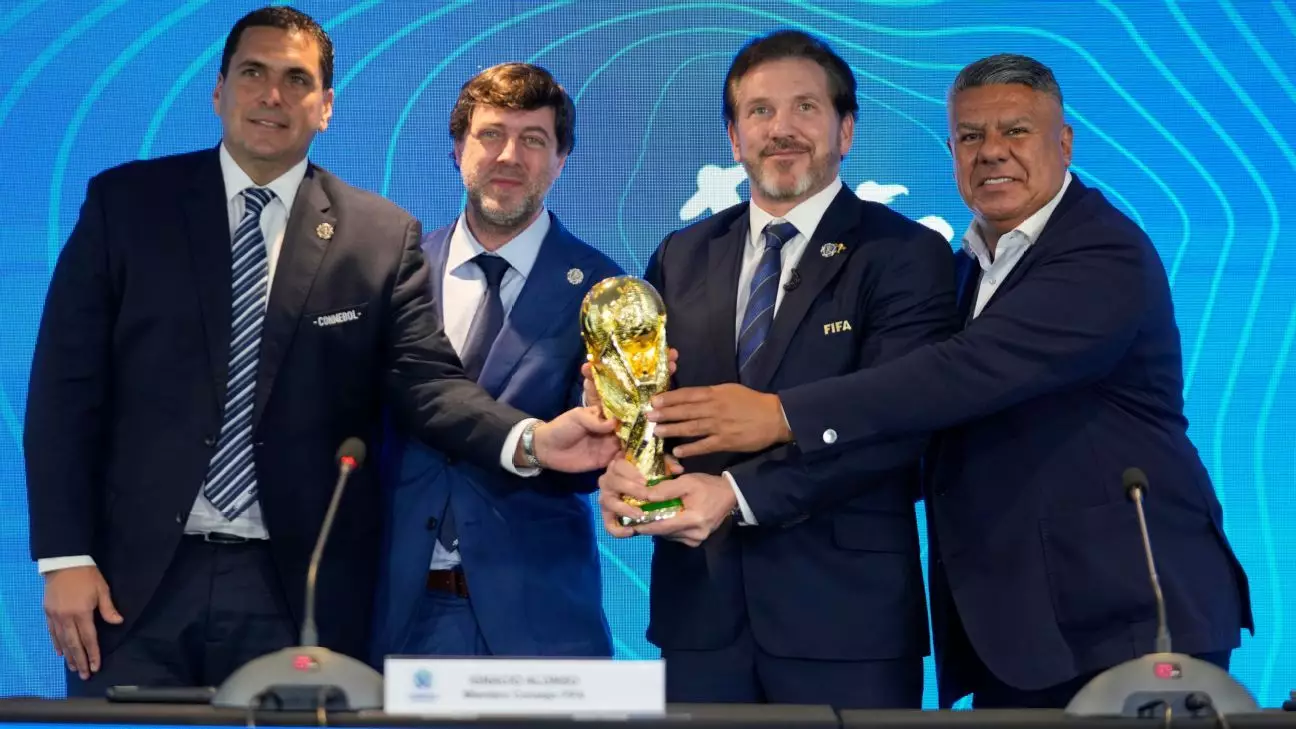In a bold move that has left many within the football community scratching their heads, the proposal to expand the men’s 2030 World Cup to 64 teams has been met with notable resistance and skepticism. UEFA president Aleksander Čehferin voiced his disapproval during a recent conference in Belgrade after the proposal was presented by a delegate from Uruguay. This unexpected suggestion raises critical concerns about the integrity and quality of one of the world’s most celebrated sports events.
Quality Over Quantity
The expansion from a 48-team format to 64 teams, while seemingly innocuous at first, poses a fundamental question: will it dilute the quality of play? Čehferin argues that the model would introduce a sprawling 128-game format, jeopardizing the competitive spirit that defines the World Cup. Critics voice a valid concern—more teams can lead to more mismatched games, diminishing the spectacle that fans have come to expect. The emphasis on expanding participation to increase revenue takes precedence over the quality of football, a trend that could undermine the very essence of the tournament.
Challenges for Qualifying Contests
Not only does the proposal raise concerns about the World Cup itself, but it may also adversely affect the qualification process for teams. UEFA currently allocates 16 spots for the 2026 World Cup, and any addition of more teams could significantly alter these dynamics. By inviting more teams into the fold, the qualifying rounds may turn into an exercise of mediocrity, where nations that traditionally struggle for a spot now have a more accessible pathway—undeniably skewing the competitive landscape.
The Underlying Economic Motivation
Underlying this ambitious proposal is FIFA president Gianni Infantino’s tendencies to view competition expansion as a means to drive financial growth and enhance the global landscape of football. While financial factors might tempt managers to favor a larger tournament, the increasing commercialization of football threatens its purity. If the primary motivation is profit, what message does that send about the tradition of the sport? The beauty of football lies in its unpredictability, a trait that a diluted tournament could rob from the game.
The Origins of the Proposal
Čehferin expressed his confusion regarding the origin of the 64-team proposal, noting that there were no prior discussions about it in FIFA council meetings. This ambiguity not only raises questions about its legitimacy but also points to a hasty push that lacks thorough deliberation and groundwork. Allowing nations like Uruguay, Argentina, Paraguay, and Brazil to celebrate the 100-year anniversary of the World Cup is a commendable idea; however, this should not come at the cost of compromising the event’s stature.
The Future of the World Cup
While the FIFA council remains non-committal on the 64-team proposal, fans and players alike hope for a future where the World Cup maintains its status as the pinnacle of football rather than a diluted cash grab. The success of the tournament is closely tied to its ability to showcase the world’s best players and teams in thrilling, hard-fought matches. The integrity of the event should take precedence over expansion for the sake of profit. As the discourse surrounding this proposal continues, the football community must remain vigilant in advocating for a tournament that genuinely reflects the art and spirit of the game.

